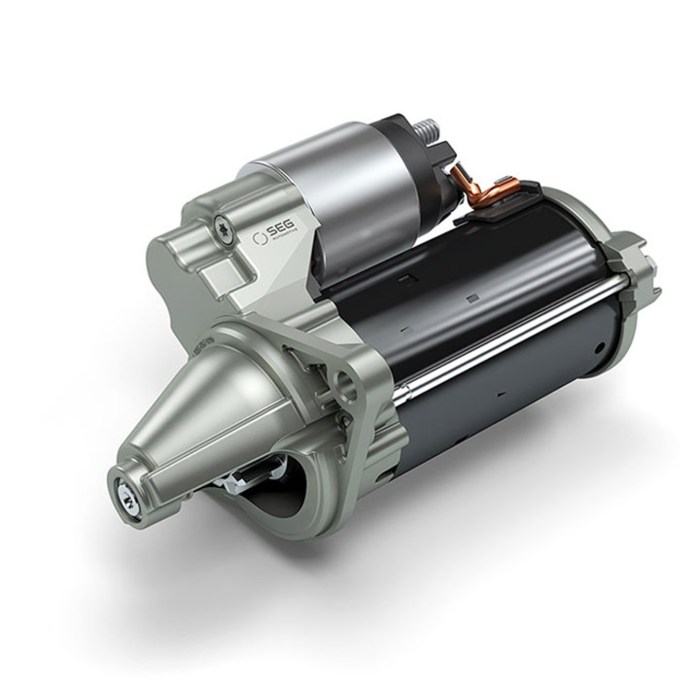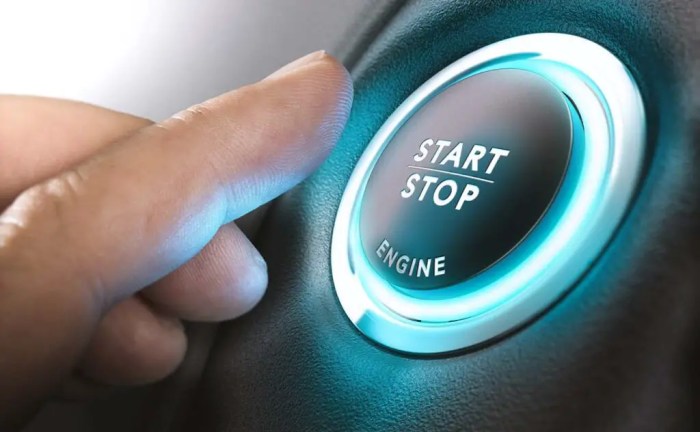Approx Price for New Car Starter
Factors Influencing Car Starter Prices
Approx price for new car starter – The price of a new car starter motor is influenced by a variety of factors, ranging from the vehicle’s make and model to the starter’s specific features and the retailer’s pricing strategy. Understanding these factors can help consumers make informed decisions when purchasing a replacement starter.
Brand Reputation and Starter Motor Cost
Established brands known for quality and reliability, such as Bosch or Denso, typically command higher prices than lesser-known brands. This reflects the perceived higher quality of components, manufacturing processes, and longer warranty periods. Consumers often associate higher prices with superior performance and longevity, justifying the added cost. For example, a Bosch starter might cost 20-30% more than a comparable no-name brand, but it’s often expected to last longer and perform more reliably.
Starter Prices Across Vehicle Makes and Models, Approx price for new car starter
Starter motors vary significantly in price depending on the vehicle’s make, model, and year. Luxury vehicles and larger vehicles (SUVs, trucks) generally require more robust starters, resulting in higher costs. Compact cars typically utilize less powerful, and therefore less expensive, starters. A starter for a luxury sedan might cost double that of a compact car due to differences in size, power requirements, and the inclusion of advanced features.
Starter Motor Features and Cost Variations
The features of a starter motor directly impact its price. High-torque starters, designed for quicker engine cranking in demanding conditions (cold weather, high altitude), cost more than standard starters. Starters incorporating advanced technologies, such as improved solenoid designs or more durable materials, will also carry a premium. For instance, a high-performance starter with a faster engagement time and increased durability might cost 40-50% more than a basic standard starter.
Price Range of Starters for Various Car Classes
| Vehicle Class | Average Price Range (USD) | Typical Features |
|---|---|---|
| Compact Car | $50 – $150 | Standard torque, basic solenoid |
| Sedan | $75 – $200 | Moderate torque, potentially improved solenoid |
| SUV | $100 – $250 | Higher torque, durable construction |
| Truck | $150 – $350 | High torque, heavy-duty components |
Sourcing and Purchasing a New Starter
Consumers have several options for purchasing a new car starter, each with its own pricing structure and associated costs. Careful consideration of these factors can lead to significant savings.
Retailer Pricing Strategies

Source: seg-automotive.com
Auto parts stores (e.g., AutoZone, Advance Auto Parts), online retailers (e.g., Amazon, eBay), and dealerships all offer new starters, but their pricing strategies differ. Dealerships often have the highest prices due to overhead costs and brand markups. Auto parts stores typically offer competitive prices, sometimes with discounts or coupons. Online retailers provide price transparency and can offer competitive prices, especially for less popular models, but shipping costs need to be factored in.
Price matching policies and sales can further influence the final cost.
Costs Associated with Starter Purchase
The total cost of a new starter includes the purchase price, shipping fees (if applicable), sales tax, and potentially installation fees. Shipping costs can vary significantly depending on the retailer, shipping method, and the starter’s size and weight. Installation fees can range from $50 to $200 depending on the vehicle and the mechanic’s labor rates.
Warranties on New Starters
Most new starters come with a warranty, typically ranging from 1 to 3 years. The warranty duration and coverage vary depending on the brand and retailer. It’s crucial to check the warranty details before making a purchase, as it protects against defects in materials or workmanship. Extended warranties are sometimes available at an additional cost.
Comparison of Auto Parts Retailers

Source: theautomotivedude.com
| Retailer | Price (Example) | Warranty | Shipping Cost (Example) |
|---|---|---|---|
| AutoZone | $120 | 1 year | $10 |
| Advance Auto Parts | $115 | 2 years | Free shipping over $50 |
| Amazon | $100 | 1 year | Varies depending on seller |
Starter Motor Types and Their Costs
Several types of starter motors exist, each designed for specific applications and performance requirements. The differences in design and materials directly affect the price.
Starter Motor Types, Specifications, and Prices
Standard starters are the most common and affordable option. High-torque starters provide faster cranking speed, particularly beneficial in cold climates or for larger engines. High-performance starters offer enhanced durability and longevity, often incorporating advanced materials and designs. The price difference reflects the increased power, speed, and durability. A high-performance starter might use stronger magnets or a more robust gear reduction system.
Materials and Price Impact
The materials used in construction significantly influence the starter’s price and durability. Starters made with higher-quality materials, such as stronger magnets or more robust casings, will generally cost more but are expected to last longer. For example, a starter with a stronger solenoid might cost slightly more but ensures more reliable starts over its lifetime.
Comparison of Starter Motor Types
- Standard Starter: Features: Basic design, adequate cranking power. Price Range: $50-$
150. Applications: Most passenger cars. - High-Torque Starter: Features: Increased cranking power for faster starts, especially in cold weather. Price Range: $100-$
250. Applications: Larger engines, trucks, SUVs. - High-Performance Starter: Features: Enhanced durability, advanced materials, faster engagement. Price Range: $150-$
350. Applications: High-performance vehicles, demanding conditions.
Installation Costs and Considerations
Professional installation is generally recommended, but DIY installation is possible for those with mechanical skills. The cost of installation depends on several factors.
Professional Starter Motor Installation Costs
Professional installation costs vary based on labor rates, vehicle type, and accessibility. Labor rates differ geographically and between repair shops. Vehicles with difficult-to-access starters (e.g., rear-wheel-drive vehicles) will usually incur higher installation costs. The average cost for professional installation typically ranges from $100 to $300, but unforeseen complications can increase this cost significantly.
Factors Influencing Installation Cost
Labor rates are the primary factor influencing the installation cost. Mechanic expertise and location also impact this cost. Accessibility of the starter motor significantly affects labor time. Some vehicles require more extensive disassembly to access the starter, increasing the labor cost.
Potential Complications and Associated Costs
Unexpected complications, such as stripped bolts or damaged components during removal, can increase installation costs. These complications require additional time and potentially replacement parts, leading to higher labor and material costs. For example, a broken bolt might require specialized tools and more time to remove, significantly increasing labor cost.
DIY vs. Professional Installation
DIY installation can save on labor costs, but it requires mechanical skills and appropriate tools. Incorrect installation can lead to further damage or injury. Professional installation ensures proper fitting and minimizes the risk of further damage or warranty issues.
Breakdown of Potential Installation Costs
| Cost Item | Cost Range (USD) |
|---|---|
| Labor | $50 – $200 |
| Parts (if needed) | $0 – $50 |
| Unforeseen expenses | $0 – $100 |
Alternative Options and Repair Costs
Before replacing a faulty starter, consider repair options and the cost-effectiveness of remanufactured starters.
Repair vs. Replacement Costs
Repairing a faulty starter is sometimes feasible and cost-effective, particularly if the problem is minor (e.g., a faulty solenoid). However, extensive internal damage might make repair uneconomical, favoring replacement. Repair costs are usually lower than replacement costs, but only if the damage is limited.
Common Starter Motor Problems and Repair Costs
- Faulty solenoid: Relatively inexpensive repair.
- Worn brushes: Moderate repair cost.
- Internal gear damage: Usually requires replacement.
Remanufactured vs. New Starters
Remanufactured starters are refurbished units, offering a more affordable alternative to new starters. They often come with a warranty, but their lifespan might be shorter than a new starter. The cost savings might be offset by a shorter lifespan.
Long-Term Cost Implications
Choosing a cheaper starter might result in shorter lifespan and more frequent replacements, increasing long-term costs. A higher-quality starter, while more expensive upfront, offers greater longevity and reliability, potentially reducing long-term expenses.
The approximate price for a new car starter varies greatly depending on the make and model of the vehicle. For instance, considering the overall cost of parts, you might find it helpful to compare that to the price of a whole used car, such as a 2018 Kia Optima SXL Turbo new car price , which can influence your decision.
Ultimately, the cost of a new starter is usually a fraction of the vehicle’s overall value.
Potential Costs Associated with Repair or Replacement
- Repair of minor issues: $50 – $100
- Replacement with a new starter: $100 – $300 (including installation)
- Replacement with a remanufactured starter: $75 – $200 (including installation)
Popular Questions: Approx Price For New Car Starter
What is the average lifespan of a car starter?
The average lifespan of a car starter is typically 10-12 years, but this can vary depending on usage and vehicle maintenance.
Can I install a car starter myself?
While possible, DIY installation is challenging and requires mechanical aptitude. Incorrect installation can lead to further damage.
What are the signs of a failing car starter?
Signs include slow cranking, clicking sounds, or the engine failing to turn over.
Are remanufactured starters a viable option?
Remanufactured starters offer a cost-effective alternative to new ones, often with warranties, but may not last as long.





















